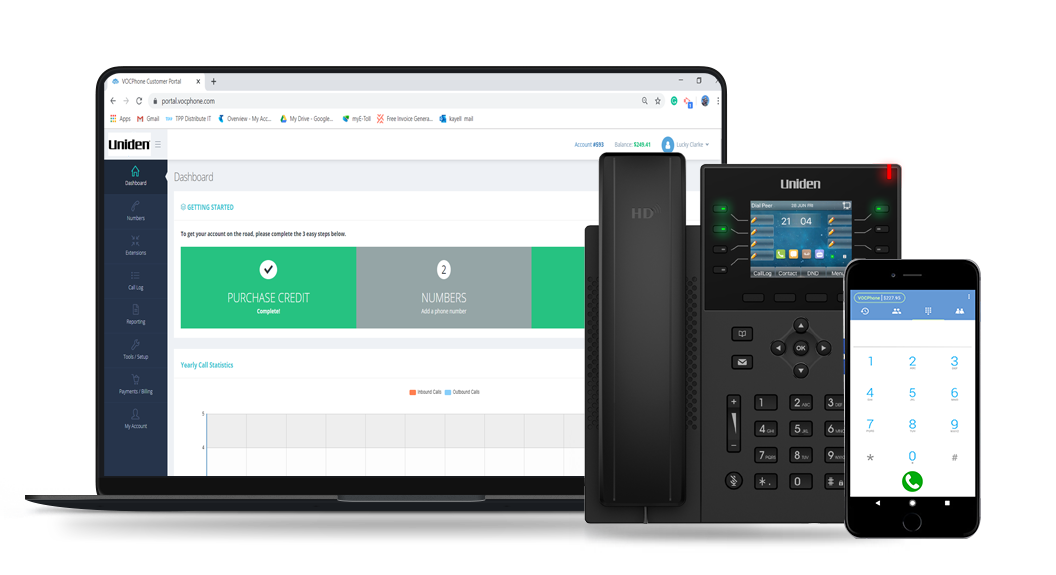
Cloud office telephone systems: A greener choice for business
Explore how switching to cloud-based phone systems can reduce your company's carbon footprint and boost sustainability.

Explore how switching to cloud-based phone systems can reduce your company's carbon footprint and boost sustainability.
As sustainability agendas take shape, businesses are looking for ways to reduce their ecological impact. One often overlooked area with significant potential for improvement is office telephone systems. Traditional on-premises phone systems consume a lot of energy and contribute to electronic waste. However, a promising solution is taking over businesses around the world: cloud-based telephone systems.
According to Gartner, more than 85% of companies stated they are adopting a cloud-first policy by 2025 which they believe will be a critical measure for carbon reduction. Cloud phone systems are very much a part of this adoption that hopes to leverage the internet to deliver voice communications, offering numerous environmental benefits. By moving telecommunications infrastructure off-site and into efficient data centres, businesses can dramatically reduce their energy consumption and hardware requirements.
This shift minimises the environmental footprint of office communications and aligns with broader sustainability goals. Let's explore how cloud telephone systems are revolutionising business communications while promoting eco-friendly practices.

Cloud systems centralise infrastructure in energy-efficient data centres, eliminating the need for on-site equipment that requires a lot of power. This results in significantly lower energy usage compared to traditional phone systems, as providers can optimise power consumption. Some cloud providers may use renewable energy sources, further reducing the carbon footprint of telecommunications.
By moving to the cloud, businesses reduce the hardware required on-premises. This minimises the production and disposal of electronic waste, as fewer physical telephones and server components are needed. Cloud-based phone systems also extend the lifespan of existing devices through software updates, reducing the frequency of hardware replacements and contributing to a circular economy.
Cloud-based systems enable remote work and virtual meetings, reducing the need for commuting to offices and business travel. This decrease in transportation directly translates to lower carbon emissions. Furthermore, remote maintenance and upgrades of cloud systems eliminate the need for on-site technician visits, further reducing vehicle emissions associated with system upkeep.
Cloud providers can efficiently allocate resources across multiple clients, maximising the use of available infrastructure. This shared resource model leads to better utilisation of computing power and storage, reducing the total environmental impact compared to individual businesses maintaining separate systems. It also allows for easy scalability without requiring additional hardware.
Law firms, accounting practices, and consultancies can reduce travel and paper use while improving client communication.
Medical practices can enhance patient care with secure and compliant cloud systems that reduce physical infrastructure needs.
Schools and universities can implement scalable communication solutions that support remote learning and reduce energy use.
Multi-location retailers can centralise communications, reducing hardware needs and enabling efficient customer service.
Factories can streamline supply chain communications and support remote monitoring, minimising on-site equipment and travel.
With years of experience in developing reliable communication solutions, Uniden understands the unique needs of Australian businesses. This is why we offer businesses feature-rich and scalable solutions that support remote work, reduce e-waste, and lower overall carbon emissions.
Our business phone systems are the ideal choice for your sustainable business communication needs.

Learn how our solutions can help your business communicate more efficiently while minimising environmental impact.
Cloud systems reduce energy consumption by centralising infrastructure in data centres, eliminating the need for power-hungry on-site equipment. These data centres are optimised for energy efficiency and often use renewable energy sources, resulting in a lower overall carbon footprint compared to traditional on-premises systems.
Yes, cloud-based systems significantly reduce e-waste by minimising the hardware required on-premises. Fewer physical phones and server components are needed, and existing devices can often be repurposed or have their lifespan extended through software updates.
Cloud-based systems enable seamless remote work by allowing employees to access communication tools from anywhere with an internet connection. This flexibility reduces the need for commuting and office space, leading to lower carbon emissions from transportation and decreased energy consumption in office buildings.
Yes, reputable cloud phone system providers implement robust security measures to protect your data and communications. These often include encryption, secure data centres, regular security updates, and compliance with industry standards. However, it's important to choose a trusted provider and follow best practices for user authentication and access control.
Cloud telephone systems often offer higher reliability than traditional systems. They benefit from redundant infrastructure in multiple data centres, ensuring continuity even if one location experiences issues. Cloud providers also handle maintenance and updates automatically, reducing the risk of downtime.